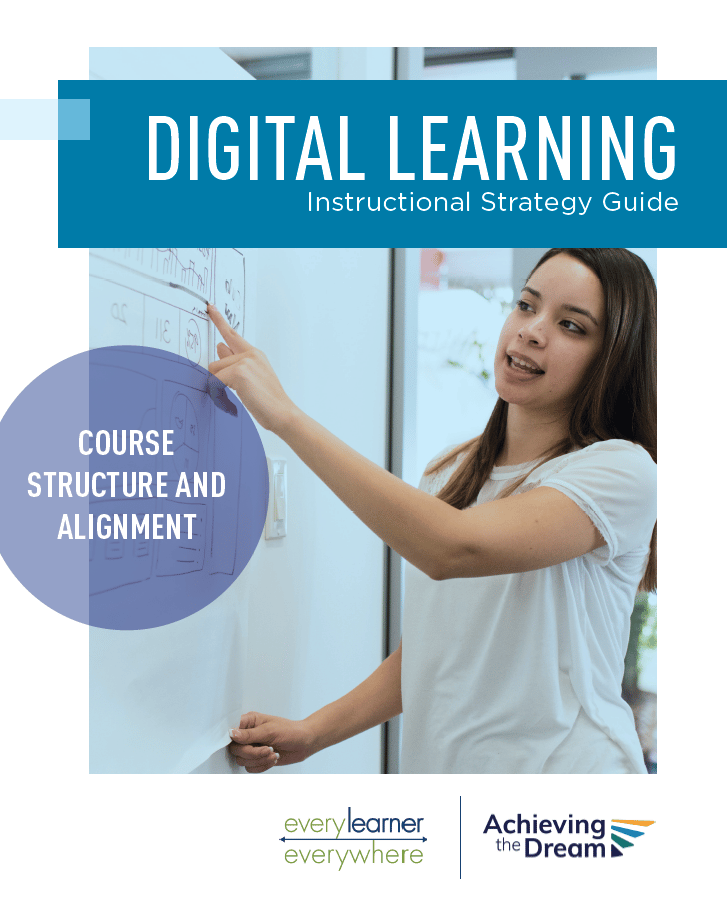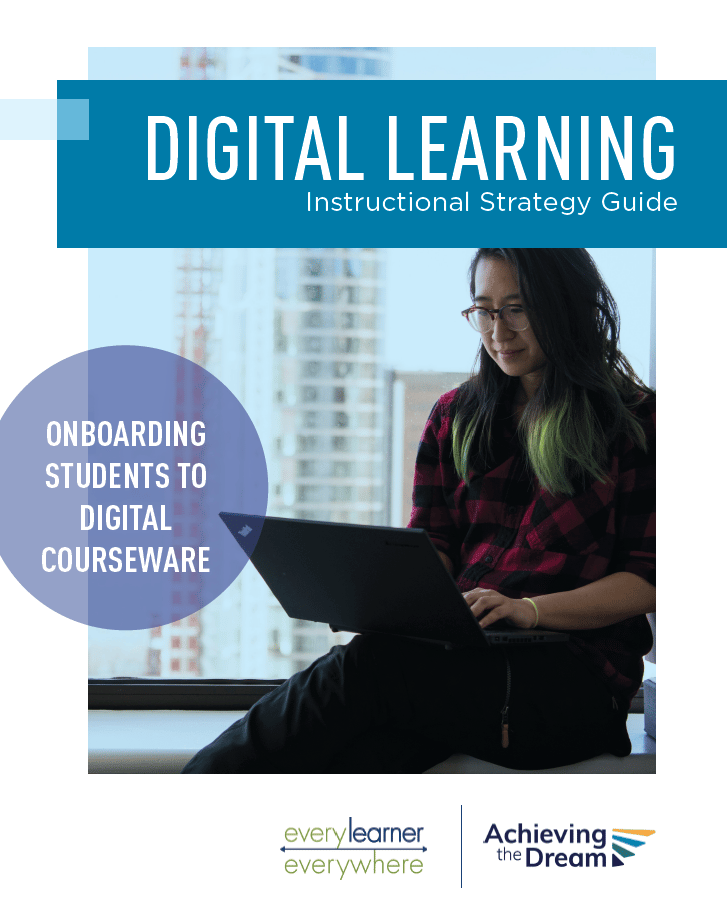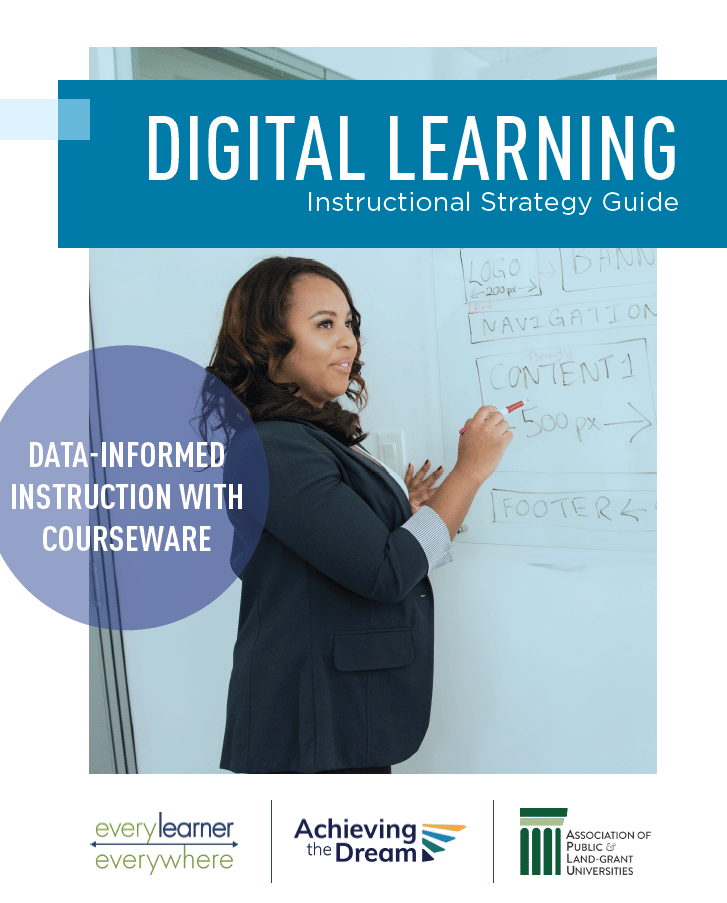
In collaboration with Every Learner Everywhere, Achieving the Dream has created a set of digital learning instructional guides that offer faculty, professional learning professionals, and instructional designers guidance on the effective use of digital teaching and learning courseware.
The series includes three student-centered teaching principles that leverage the strengths of learning technology and evidence-based teaching practices. The strategies include course structure and alignment, onboarding, and data-informed instruction with courseware. Each strategy was developed thoughtfully with faculty and students in mind to support course redesign and instruction via a how-to guide.
Jump to DownloadsIntroduction
High-quality digital learning experiences are built on the principle of providing student-centered, equitable activities and materials that facilitate student success. These experiences rely on the thoughtful use of the relevant features and functionality of digital learning technologies to enable evidence-based teaching practices. These instructional strategy guides offer guidance on the effective use of digital courseware by highlighting three approaches that leverage the strengths of technology and high-impact teaching practices.
Through the work of digital teaching and learning initiatives with institutional teams from 21 colleges, three strategies for course development and instruction emerged as essential elements in designing student-centered digital learning experiences with digital courseware.
Digital courseware is defined as comprehensive software that includes content that is scoped and sequenced to deliver instruction and assessment for a complete course (“Courseware in Context,” 2022). Courseware forms may include content, assessment, data analytics delivered through a single platform, the institution’s Learning Management System (LMS), or the coordinated use of a collection of digital tools.
To support faculty in their thoughtful use of digital learning technology, each strategy is exemplified in an actionable, accessible, step-by-step guide geared towards providing manageable steps for implementation. Each instructional strategy guide is organized with a definition, a rationale, a look at who’s impacted, and actionable steps for implementation. These guides are best used during the course design or redesign stage of course development but may also serve as just-in-time resources and references during a course.
Course Structure and Alignment
In this guide, educators will be given guidance on a thoughtful process on structuring their course in ways that intentionally integrates the digital courseware components with the curriculum content and pedagogy to achieve student outcomes. The guide includes a set of steps to align course material and activities, ensuring content is consistent and clear for the learner.
Onboarding Students
Onboarding students to the digital courseware is an important step that is too often missed or rushed through. This strategy guide describes various approaches to ensure students understand the purpose and intended use of the digital teaching and learning tool before and during instruction. The guide includes a variety of methods of onboarding approaches which allow educators to adapt to their students, courses, and digital courseware, as they see fit.
Download the Guide
Data-Informed Instruction with Courseware
Digital courseware provides instructors with real-time data that can be used to inform instructional decisions that support student learning. The guide covers how to make meaning of common learning analytics dashboard data points and includes possible instructional adjustments or interventions. Throughout this guide, educators are presented with important strategies and examples that demonstrate how to use course and student level data intentionally in ways that leverage the insights from the performance and engagement indicators provided by the courseware.
Download the Guide

